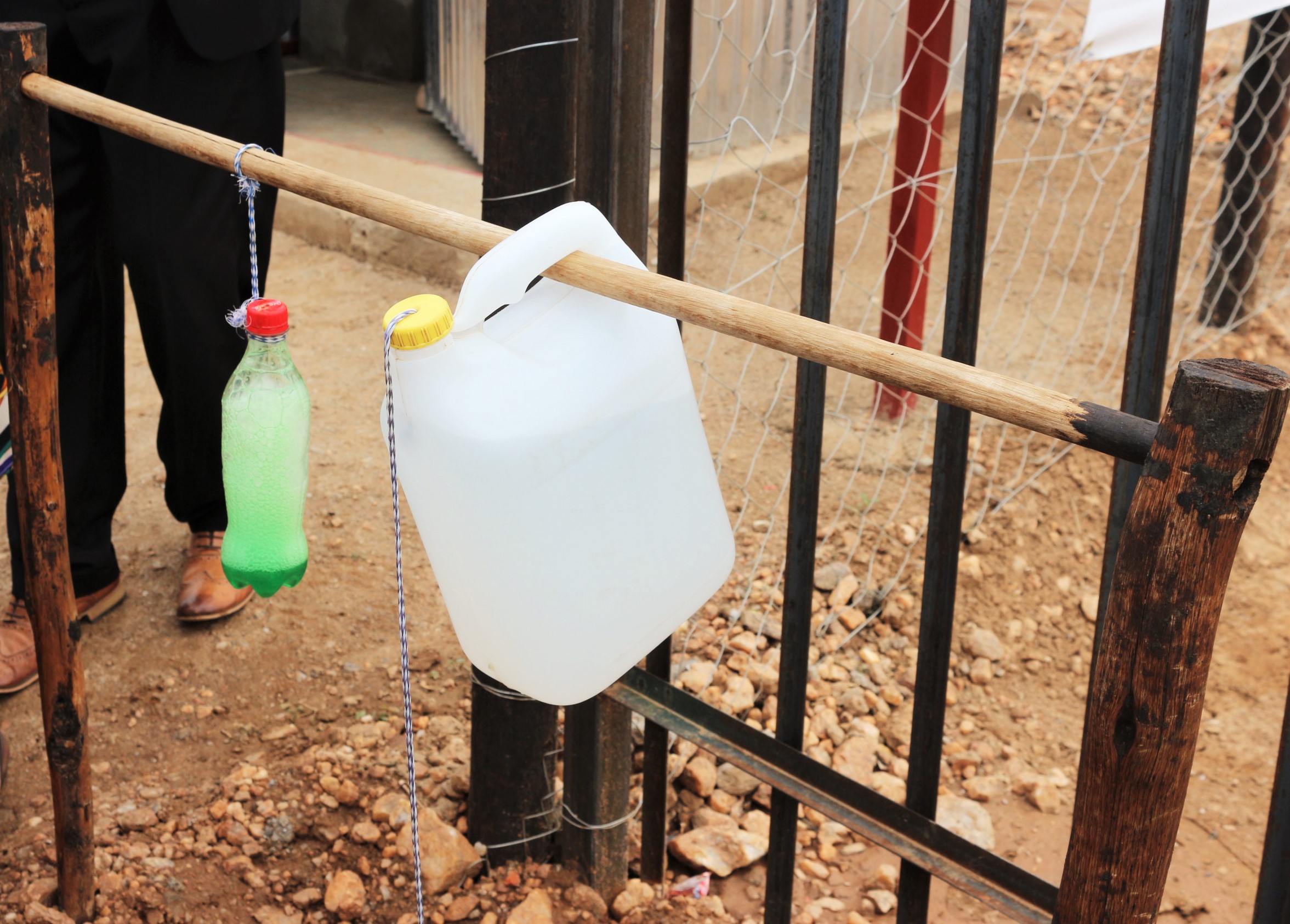A household toilet constructed as part of the Hepatitis E project in the Moses Garoeb Constituency
The Embassy of Japan, the Ministry of Health and Social Services, the Development Workshop of Namibia and the UNDP Namibia Country Office conducted a field Visit for the Hepatitis E project on 17 February 2020. The location of the visit was at the Samora Machel & Moses Garoeb Constituencies for the ‘Improving health response system to contain #Hepatitis E Virus (HEV) outbreak in affected health districts in Namibia.
UNDP through funding received from the Government of Japan supported the Urban Community-Led Total Sanitation initiative (CLTS) spearheaded by UNICEF under the WASH initiative. Chosen as a response strategy for behaviour change which is a requisite to eliminate Open Defecation (OD) practices, CLTSs improve hygiene practices and encourages the proper use and maintenance of toilets. The urban CLTS pilot project was initiated in the most affected constituencies in Windhoek (Moses Garoeb and Samora Machel).
The Ambassador of Japan to Namibia and the UNDP Namibia Resident Representative speaking to beneficiaries of the Hepatitis E project during the visit.
To date, the project built 8 Sanitation centres in the two constituencies to demonstrate how to build proper toilet facilities. More than 3400 households with approximately 13,000 inhabitants were reached as part of the project's outreach activities for awareness creation.
Furthermore, 4 Sanitation Action Groups were established with a total of 45 members (31 females, 14 males) established and trained in four Community-Led Total Sanitation blocks. 50 young people trained for pit latrine construction, who are now able to train others.
A toilet constructed with the support of the Government of Japan in the Samora Machel constituency and a tippy-tap outside
A tippy tap at a kindergarten in the Samora Machel Constituency
The President of Namibia declared a state of emergency due to the outbreak of Hepatitis E in December 2017. The project is funded by The Government of Japan with support from UNDP Namibia. The component on Community-Led Total Sanitation is implemented by Development Workshop Namibia with support from UNICEF Namibia.

 Locations
Locations



